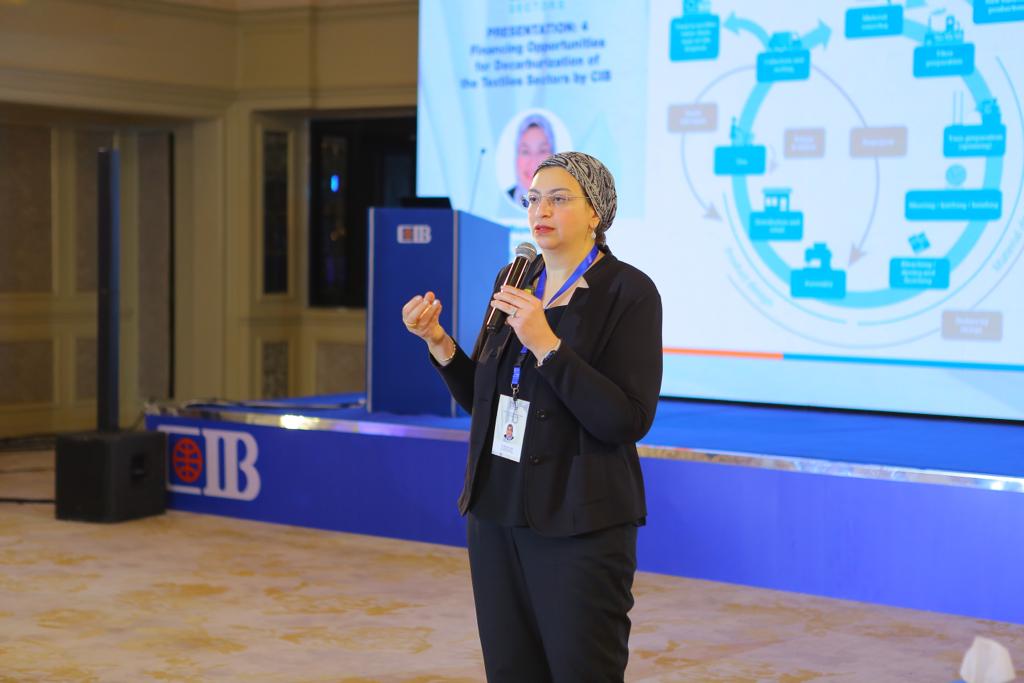
5 Steps to Build an Effective CSR Strategy
In today’s business landscape, Corporate Social Responsibility (CSR) has evolved from being a “nice-to-have” to ...

Maysoun Ali, Head of E&S Management and Sustainability Systems at CIB Egypt, said that financing any project will require checking its carbon footprint, referring to a decision by the Financial Regulatory Authority last year that the companies listed on bourse has to issue reports on their carbon footprint, sustainability and climate change disclosure.
She referred to the facilities offered by the CIB to its customers to promote sustainable finance.
She made the remarks during the Third CIB‘s Sustaining Sectors Workshop for Egypt’s Textile Leaders.
She expounded that green bonds focus only on the environmental elements that should be taken into consideration, especially CO2 emissions from various kinds of fuel.
She touched on the efforts exerted by the CIB to issue the green bond in 2021, noting that bank applied international standards in this respect.
She added that green bonds concentrate on projects related to renewable energy, resource efficiency, sustainable transportation, and green building.
Sustainability bonds focus on the environmental and social (E &S) factors that focus not only on gender, but also on the surrounding community, she said.
Blue bonds focus on the negative impact on the maritime life, she said, noting that this contributes to water desalination efforts and renewable energy, she expounded.
She said these definitions were new in the Egyptian market; therefore the CIB was keen to create market for financing tools in which the whole world is interested, including sustainable finance, rather than looking only at how much it can gain.
Sustainable finance and social governance will absolutely lead to increasing profitability, she highlighted.
The bank has to have the infrastructure that enables it to manage financial packages of the IFC and other international institutions, she said.
She noted that projects should be evaluated from environmental, social and finance perspectives.
The most important sectors for attaining the Sustainable Development Goals (SDGs) include energy efficiency and renewable energy as well as sustainable transportation, industry, and agriculture, she said.
Meanwhile, she highlighted the importance of reaching zero waste.
The bank seeks to get projects to realize 15 percent drop in energy consumption, 10 percent reduction or recycling of water consumption, she noted.
Green buildings are one of the most important projects for the bank under the umbrella of green bonds, she said, noting that the bank is also offering technical support for green buildings.
This is the first time for an Egyptian bank to offer advisory services for clients via different channels, including sectoral guidelines and audits, she added.
“We worked in 2020 and implemented projects in 2021,” the bank’s impact has resulted in greenhouse gas emissions reduction at about 12,984 CO2 emission equivalents.
اترك تعليقا